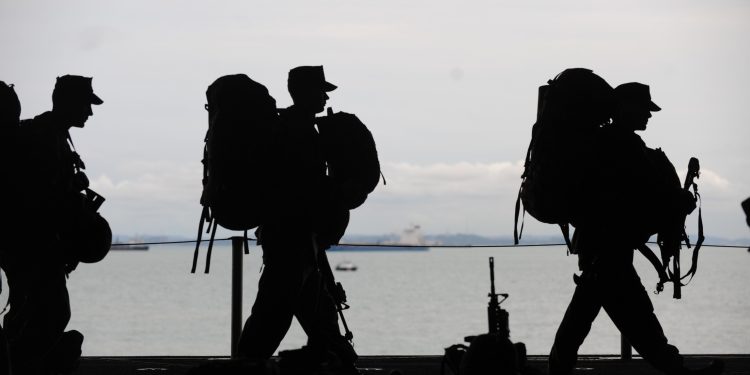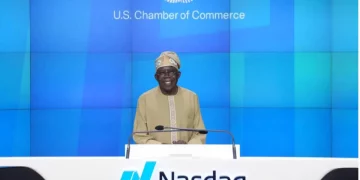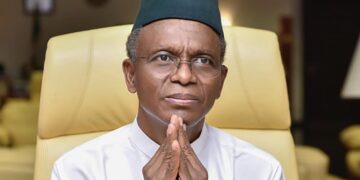Recent years have witnessed an alarming surge in the occurrence of coup d’état incidents across West and Central Africa, painting a troubling portrait of political instability in the region.
This troubling trend has deep historical roots, with the echoes of coups resonating through the corridors of power and governance.
Now, a new development in Gabon adds to the growing apprehension. In this report we look at these coups that has been successfully executed in the region and those behind them.
Burkina Faso: Triggering a Chain Reaction
The chain reaction of political turmoil commenced in Burkina Faso in January 2022. The army’s ousting of President Roch Kabore set a precedent for a series of upheavals to follow.
The military cited the President’s failure to effectively address the growing violence caused by Islamist militants as a catalyst for their intervention. Lieutenant Colonel Paul-Henri Damiba assumed power, pledging to restore security.
However, the nation found itself caught in the crosshairs of instability, leading to another coup in September 2022, with Captain Ibrahim Traore assuming control.
Guinea: Challenging the Status Quo
The flames of political discontent spread to Guinea in September 2021, as Colonel Mamady Doumbouya led a successful coup against President Alpha Conde.
Conde’s attempt to extend his presidency beyond constitutional limits ignited widespread protests. Colonel Doumbouya assumed interim presidency, vowing to steer the nation toward democratic elections within three years.
However, the international community questioned the junta’s timeline and imposed sanctions, demanding a clearer path towards constitutional rule.
Chad: Shifting Leadership Amidst Crisis
April 2021 saw Chad grapple with its own political upheaval following the death of President Idriss Deby. While Chadian law indicated that the speaker of parliament should assume the presidency, the military council dissolved the parliament to ensure stability.
General Mahamat Idriss Deby, the late President’s son, emerged as the interim president, entrusted with leading an 18-month transition to elections. The unconstitutional transition triggered protests in N’Djamena, suppressed by the military.
Mali: The Perpetual Struggle for Stability
Mali experienced its first coup of the current wave in August 2020 when a group of colonels led by Assimi Goita removed President Ibrahim Boubacar Keita from power.
The coup unfolded amid anti-government protests, security concerns, contested elections, and allegations of corruption.
Pressure from Mali’s West African neighbours compelled the junta to cede power to a civilian-led interim government, overseeing an 18-month transition to democratic elections.
However, internal tensions led to a second coup in May 2021, with Goita assuming the presidency.
Niger’s Presidential Guard Ousts President Bazoum
The surge of coups commenced in 2020, gaining momentum with each new incident. The political turmoil began to unravel in Niger in July 2023, when members of the presidential guard captured President Mohamed Bazoum.
The military’s declaration of control on national television highlighted their commitment to restoring order amidst security concerns and governance issues.
ECOWAS and Delicate Diplomatic Negotiations
In response to the coup in Niger, the Economic Community of West African States (ECOWAS) has been actively engaged in delicate diplomatic negotiations. While diplomatic avenues are being explored, the readiness to deploy regional forces remains on the table as a possible course of action. The situation underscores the complexity of maintaining stability in the midst of political turbulence.
Gabon: The Latest Chapter in a Disturbing Trend
The narrative of political upheaval continues with Gabon becoming the latest nation to experience the tumultuous wave of coups.
This is the most recent incident of coups. It ended the regime of the long standing political oligarchy orchestrated by a single family in Gabon.
The military, in an announcement on national television, declared their takeover, citing the need to address the ongoing challenges faced by the nation.
This recent incident serves as a stark reminder of the fragility of governance structures in the region.
The Quest for Stability Amidst Uncertainty
As West and Central Africa navigates this challenging era, the call for stability has grown louder. The legacy of successful coups serves as a reminder that establishing and sustaining effective governance structures remains a formidable task.
As the region grapples with the implications of these power shifts, the collective focus remains on restoring stability, ensuring accountable governance, and preserving the well-being of the citizens.
The international community’s involvement, diplomatic negotiations, and the willingness to deploy regional forces all bear witness to the collective commitment to shaping a more stable and prosperous future for the region.












